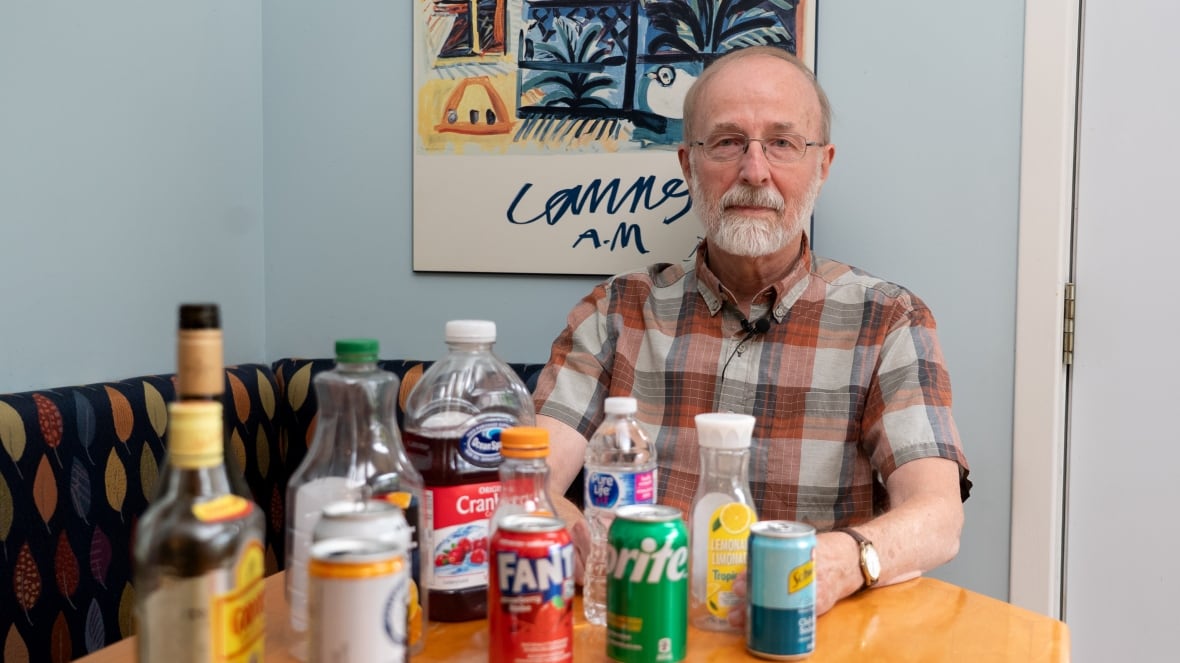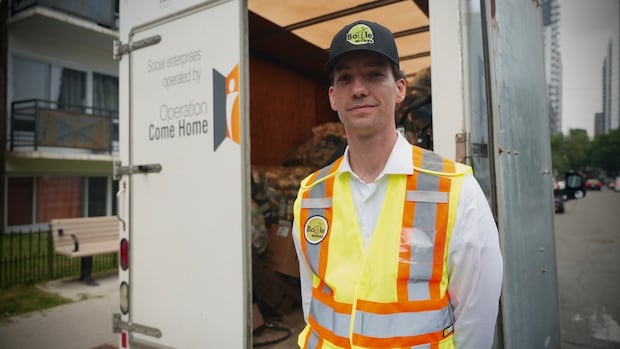As Beer Stores shut their doors, who will take your empties?
Charities like Operation Come Home see opportunity to boost collection efforts
With more and more Beer Stores closing across Ontario, charities and non-profits that rely on bottle collection are hoping to cash in on your empties.
The Beer Store currently processes about 1.6 billion empty alcohol containers per year. But it has closed dozens of locations across the province since the arrival of beer in convenience stores, and plans to shutter still more this September.
At least five of the actual or planned closures are in Ottawa, including one in the Glebe, where Operation Come Home runs a bottle drive as part of its BottleWorks social enterprise.
Executive director John Heckbert hasn't noticed any impact yet — but he's hoping more residents will call on BottleWorks to collect their empties.
"We would be very happy to help people if they find that they're accumulating bottles or that they would like somebody to come pick them up," he said.
"It's definitely bad news for the people that are affected by the closures," he added. "But it is a positive for our program in the sense that we can provide more employment opportunities and more activity for our youth."
Operation Come Home provides housing, employment and eduction programs for homeless youth, who staff the BottleWorks program. They ride around in the truck and collect from practically anywhere in Ottawa, though suburban areas have higher minimums for collection.
Residents can fill out a form on the BottleWorks website and schedule a collection date. They can get a tax receipt in return.
"We are going to be adding two new trucks to the road in the coming year," Heckbert said. "We're going to expand the capacity of the program and this timing will help us make sure that the trucks are always full."
Animal rescues also hopeful
BottleWorks isn't the only group that will pick up empties. Fundraisers for animal rescues also collect bottles and cans to pay for food and vet bills.
Darlene Charman of Empties for Paws Orleans said empties play a major role in their fundraising. She saw a major uptick in collections during the COVID-19 pandemic, when it was tougher for people to get out for returns.
She wonders whether the Beer Store closures might trigger a similar trend.
"It could bring a little bit more of an influx of the empties to the animal rescues, because the people won't be bothered to drive further out," she said.
Melody Lachance collects empties for several animal rescues through her fundraising group, Barrhaven & Area Empties. She too is hoping for a boost.
"They may just contact us and say, 'Do you want my empties, because I'm not going to drive to wherever to cash them in,'" she said.
Lachance is already looking to nearby Manotick, where a store is set to close later this month.
But further closures could also be a hindrance, since both Lachance and Charman rely on the Beer Store for returns.
Waste reduction advocate worried
Duncan Bury of Waste Watch Ottawa agreed that charities can pick up some of the slack left as Beer Stores closed, but not enough to compensate for the overall decline of a collection system he already sees as severely lacking.
Where other provinces like B.C., Alberta and Saskatchewan collect about 80 per cent of their empties, Ontario brings in only about half.
"That 50 per cent number will surely fall," Bury said. "The whole system, which is not very good to start with, is just going to get worse."

Buty noted that most other provinces accept non-alcoholic containers and offer far more locations for residents to return their empties. Quebec has 1,200, while B.C. has 600.
Currently, the Beer Store is required to keep at least 300 locations open as part of a contract with the provincial government. But that will end as of Jan. 1. Bury fears that could mean more closures and even fewer options for returns.
"The options to recover those containers are frankly disappearing," said Bury.
On that same date, the province will require grocery stores that sell alcohol to accept empties for collection. Bury said that could work. It's a major component of British Columbia's successful system.
"If they can do it in British Columbia, there's absolutely no reason they shouldn't be able to do it in Ontario," he said.
But he's concerned it won't happen. The province already requires about 70 grocery stores in areas without Beer Stores to accept empties. But a report in May found that few were actually complying.
Bury said the province needs to be tough with the grocers, but it should also do more. He said Ontario should open stand-alone depots for bottle returns, like Quebec and British Columbia.
Heckbert said BottleWorks could help businesses that sell alcohol by taking the empties off their hands.
"I could imagine that for a grocery store, space and inventory will be an issue. It's the same thing that our bars and restaurants encounter," he said.
"So if there is a store that's doing bottle collection that would like somebody to come help them out, we're absolutely here to pick them up as well."


